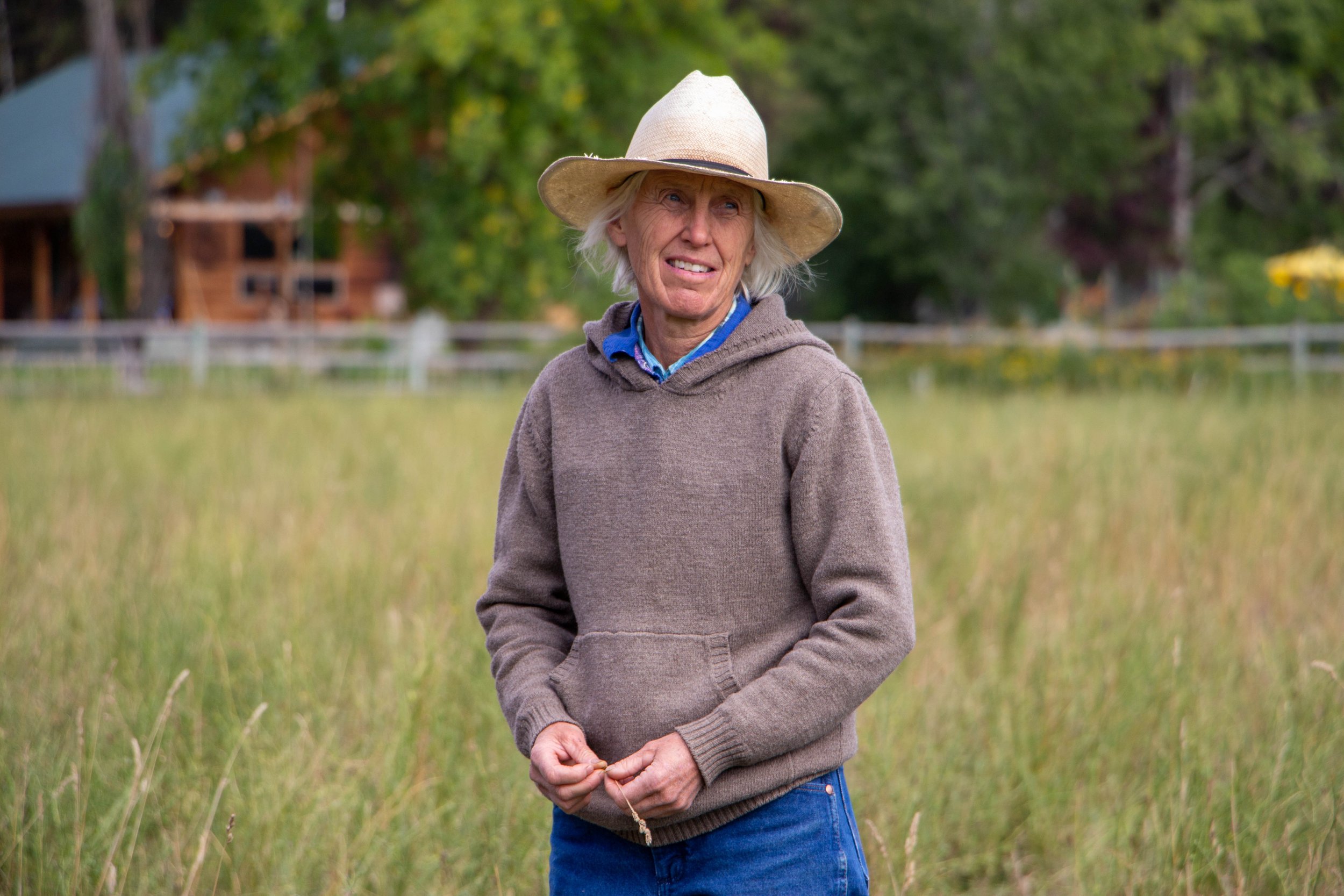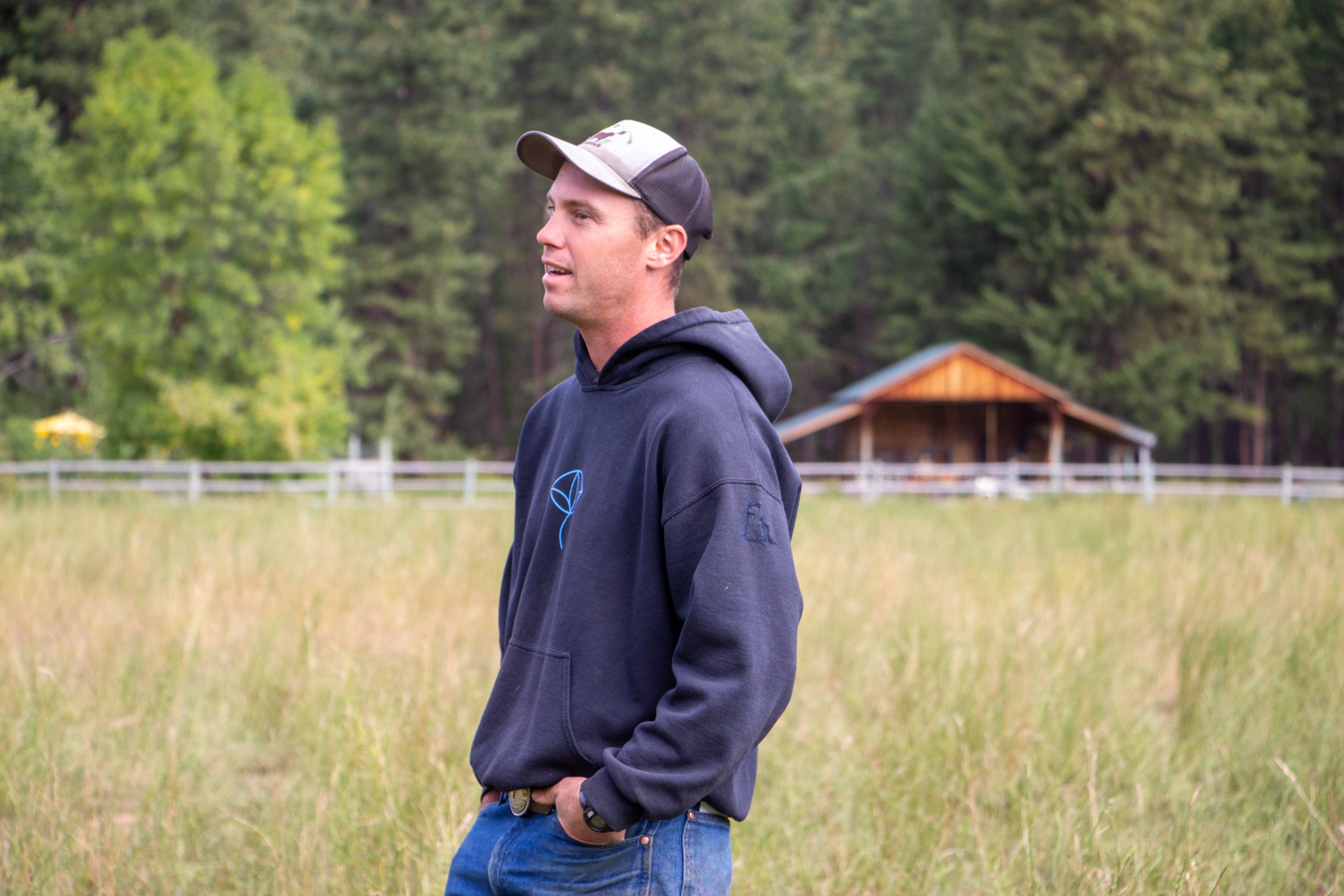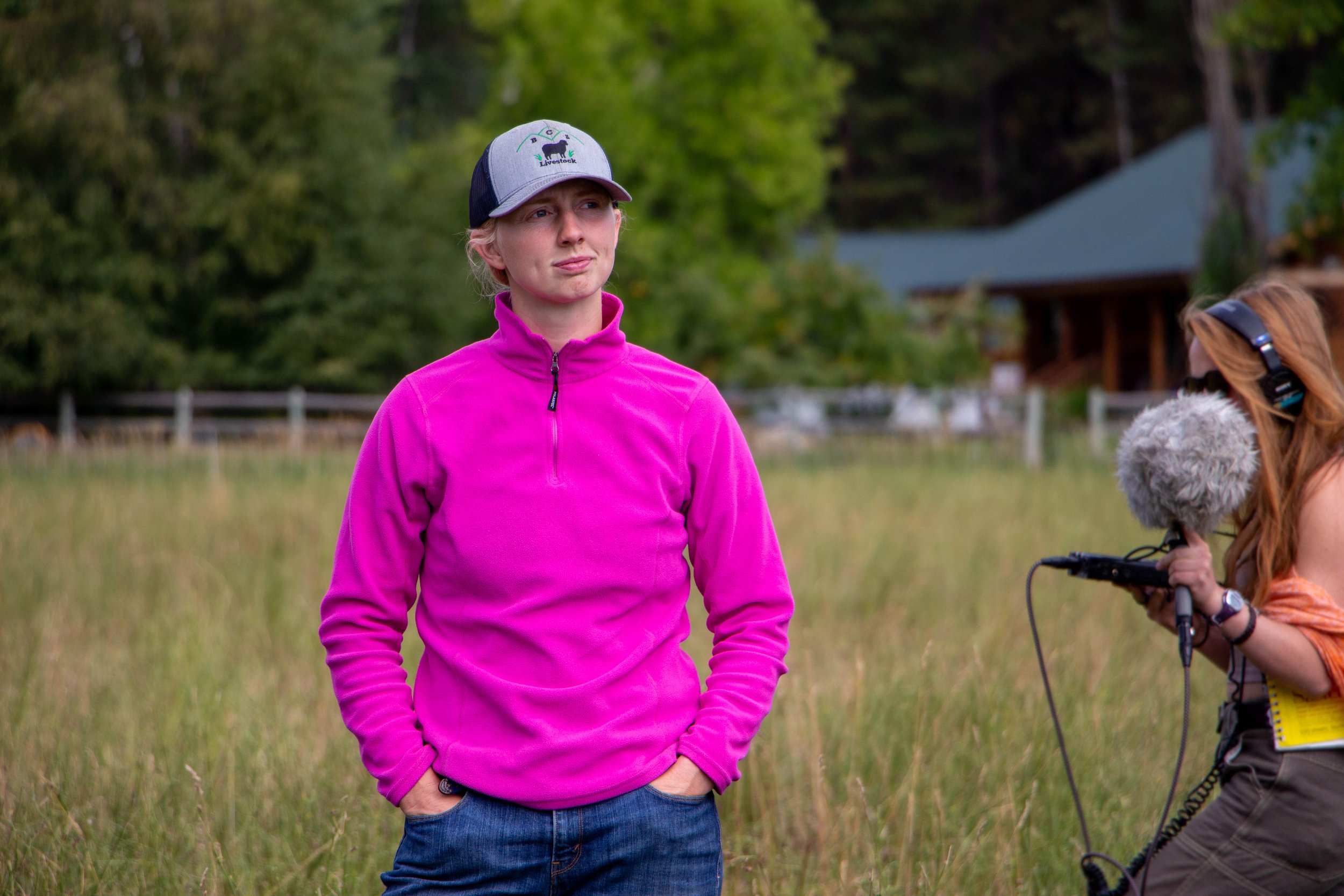Betsy Devin Smith, Casey Smith and Johnnie Duguay Smith
Owners and Operators, BCS Livestock
Twisp, WA
9/1/2021
Betsy Devin Smith and her husband, Skip, started BCS Livestock, a farm that sells grass-fed lamb meat and wool products in the Methow Valley in Washington state. The business became a full-family endeavor when Casey, their son, and Johnnie, Casey’s wife, graduated college and moved to the Methow (BCS stands for “Betsy, Casey, Skip”). Together, the family practices regenerative agriculture. They focus on using mob-style grazing; placing many sheep in an area for a short period, which they believe improves soil health.
BCS grew from the family’s realization that the traditional cow-calf operation was no longer financially viable for them. Betsy believes that “the producer isn’t capturing enough of that dollar value [of the beef sold]” to break even. After taking a holistic ranch management class with Washington State University, the family realized that they could change the way they thought about agriculture.
Betsy says that they asked themselves: “’Are we really cattle ranchers, or are we grass farmers — land managers?’” After some discussion, they decided to raise sheep, which can be sold more quickly, and to focus on understanding the environment in which the sheep graze.
Now, the family works within the Methow Valley community and provides local services. BCS Livestock sells directly to the Valley’s occupants, mostly through word-of-mouth. They also rent many irrigated properties in order to graze their sheep and “mow” lawns for events.
“The ranch today is not going to be like your father’s ranch,” Betsy said. “The agriculture of tomorrow is not going to be necessarily like your father’s or your grandfather’s agriculture. It’s new and different.”
By Emma Fletcher-Frazer




